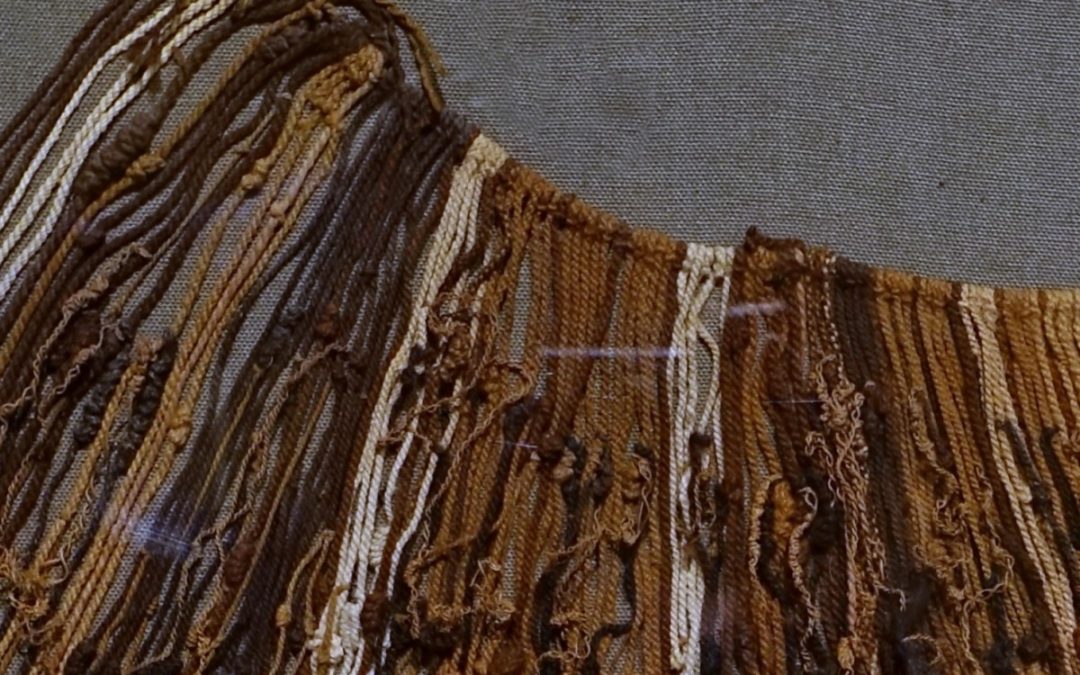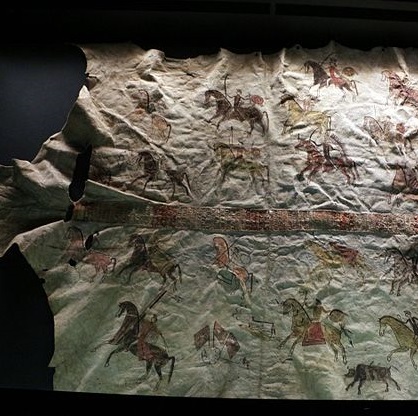
by Richard Subber | Mar 30, 2023 | American history, Book reviews, Books, History, Politics, Power and inequality
Tell yourself the truth…
Book review:
Upheaval: Turning Points for Nations in Crisis
by Jared Diamond (b1937)
New York: Little, Brown and Company, 2019
Diamond’s Guns, Germs, and Steel won a Pulitzer Prize in 1998.
502 pages.
Diamond delivers a knock-out with every one of his books. Upheaval is no exception.
Diamond fully backs up his frank and frightening assessment of the United States in its current crises.
America and Americans have many strengths, including our geographic stronghold and our democratic traditions. We’re facing many fault lines, not least of which is our increasingly paralyzing political polarization and refusal to embrace sensible compromise to get good things done for all Americans. Repeat for effect.
Upheaval is not a feel-good book. It is a call to action, with a credible road map and many reasons to fear our failure to face up to our crises.
* * * * * *
Book review. Copyright © Richard Carl Subber 2023 All rights reserved.
Book review: Shakespeare’s Wife
Germaine Greer went overboard a bit…
–
As with another eye: Poems of exactitude with 55 free verse and haiku poems,
and the rest of my poetry books are for sale on Amazon (paperback and Kindle)
and free in Kindle Unlimited, search Amazon for “Richard Carl Subber”
* * * * * *

by Richard Subber | Mar 15, 2023 | American history, Book reviews, Books, History, Power and inequality
guns and germs…
Book review:
1491:
New Revelations of the Americas Before Columbus
by Charles Mann
New York: Vintage Books, 2011
1491 offers everything you never knew about civilized people in the Americas before the Europeans arrived and killed most of them (OK, many died in battle, but it was European diseases, mostly). Maybe close to 100 million “native” people died within 100 years or so of the “discovery” by Columbus…but hold on, this book is not about Wounded Knee-type criticism or ex post facto self-flagellation.
In 1491, Mann beautifully describes the marvelous sophistication of cultures, cities, agriculture, arts, and science that blossomed in North America, Central America, and South America thousands of years ago, in many cases predating achievements and growth and civilization in Europe.
Yes, the Incas never used the wheel except for children’s toys.
Yes, the Mississippian city of Cahokia was a bustling port and a trading center with population equal to Paris in France—and that was 500 years before Columbus sailed.
Yes, the Olmec culture in what is now Mexico invented the zero whole centuries before mathematicians in India did the same.
My recollection of schoolboy learning about the history of the Americas is that the dates and events were tied to discovery and conquest and colonization by Europeans. The implication was that, before the white men with guns, germs and steel arrived, nothing much was going on in whole continents characterized more by “virgin land” and “endless wilderness” than by people who had agriculture, city life, art, trade, commerce, religion, science, kings, and philosophers.
Mann offers 1491: New Revelations of the Americas Before Columbus. For me, the joy of reading this book is learning about the multiplicity of cultures that flourished in the Americas, and learning how they tamed and managed and very greenly conserved their environment…and for me, the sad revelation of this book is understanding that the peoples of the Americas were human beings whose achievements were noble and notable, and yet, lamentably, their cultural legacies are largely lost and the losses are barely mourned.
In 1533 Pizarro and his conquistadors at Cuzco precipitated the decline of the 300-year-old Inca empire in Peru. Fifty years later, the Spanish colonial administrators in Peru ordered the burning of all the Incan “khipu” knotted string records because they were “idolatrous objects.” Khipu were the Incas’ only form of writing. The smoke from the burning of their books gets in your eyes, forever and ever.
* * * * * *
Book review. Copyright © Richard Carl Subber 2023 All rights reserved.
Book review: The Sea Runners
…it informs, it does not soar…
by Ivan Doig
–
Above all: Poems of dawn and more with 73 free verse poems,
and the rest of my poetry books are for sale on Amazon (paperback and Kindle)
and free in Kindle Unlimited, search Amazon for “Richard Carl Subber”
* * * * * *

by Richard Subber | Mar 5, 2023 | American history, Book reviews, Books, History
they weren’t heroic…
Book review:
Go Down Together:
The True, Untold Story of Bonnie and Clyde
by Jeff Guinn (b1951)
New York: Simon and Schuster, 2009
467 pages
Newspaper coverage in the early 1930s turned Bonnie Parker and Clyde Barrow into nationwide celebrities. Movies and books have perpetuated the carelessly positive news coverage, and the often fictional heroic antics of the crime duo.
The matter-of-fact treatment in Go Down Together makes the unvarnished reality more clear: Bonnie and Clyde were wacky, violent, and vicious criminals who killed 13 people and spent their 21-month crime spree on the run, mostly living “…the mundane, routine Barrow Gang misery of camping in cars and dining on cans of cold beans.”
They were killed in an ambush on May 23, 1934, in Louisiana. Several officers of the law fired about 160 bullets at them in less than 20 seconds—neither Bonnie nor Clyde fired a single shot.
Nothing about them makes a pretty picture.
* * * * * *
Book review. Copyright © Richard Carl Subber 2023 All rights reserved.
We Were Soldiers Once…and Young
…too much death (book review)
Lt. Gen. Harold G. Moore (ret.)
and Joseph L. Galloway
–
Above all: Poems of dawn and more with 73 free verse poems,
and the rest of my poetry books are for sale on Amazon (paperback and Kindle)
and free in Kindle Unlimited, search Amazon for “Richard Carl Subber”
* * * * * *

by Richard Subber | Feb 25, 2023 | American history, Book reviews, Books, History, World history
engrossing, but not Larson’s best…
Book review:
Dead Wake: The Last Crossing of the Lusitania
by Erik Larson (b1954)
Crown Publishers, New York, 2015
430 pages
I’m a fan of Erik Larson, starting with The Devil in the White City. Dead Wake offers a similar reading experience in Larson’s “no frippery” prose, and with a consistent tension that makes it a page turner.
I confess that it’s hard to avoid the somewhat deadening spoiler in this story: from Page 1, we know how it’s going to end. Torpedoed by Germany’s U-20, the Lusitania went down in about 18 minutes. Larson’s approach is exclusively chronological; it’s not a bad thing, but I found myself almost thinking out loud—“let’s get on with it”—as I navigated through the certainly more than adequate number of anecdotal scenes involving the ill-fated passengers and their clothing/meals/flirtations/premonitions/self-assurances…
Full disclosure: to the end, I was rooting for passenger Theodate Pope to get some love in her life. On the other hand, I now know far more than I care to know about President Wilson’s mushy courting of Edith Galt (who became his second wife).
The thing is, Larson tells a great yarn here but he doesn’t invite the reader to grapple with it. It falls short of shattering, consequential drama. The sociable elements—the almost chatty context—of much of his tale seem to displace full engagement with the terror of the event, and the outcomes that it hastened.
Larson tries to invest this story with solemnity, respect, and understanding.
Dead Wake is a dutiful—indeed, engrossing—account, but it doesn’t quite rise to the occasion.
* * * * * *
Book review. Copyright © Richard Carl Subber 2023 All rights reserved.
Play review: A Doll’s House
Henrik Ibsen’s classic on abuse…
–
In other words: Poems for your eyes and ears with 64 free verse and haiku poems,
and the rest of my poetry books are for sale on Amazon (paperback and Kindle)
and free in Kindle Unlimited, search Amazon for “Richard Carl Subber”
* * * * * *

by Richard Subber | Feb 8, 2023 | American history, Book reviews, Books, History, Politics
the Battle of the Greasy Grass…
Book review:
Lakota America:
A New History of Indigenous Power
by Pekka Hämäläinen
New Haven, CT: Yale University Press, 2019
530 pages
It’s just fabulously interesting to learn more and more about the lives, the cultures, and the civilizations of the American Indians who were in quite a number of catbird seats in the continental United States until well into the 19th century.
Don’t forget that the Battle of the Little Bighorn—“Custer’s Last Stand”—known to Indian survivors as the Battle of the Greasy Grass—played out on June 25, 1876, more than a decade after the Civil War, in the same year that Alexander Graham Bell patented his telephone.
The Lakota, one of three major groups of the Sioux Indians, were dominant in the high plains west of the Great Lakes and the Mississippi River. They became a culture on horseback, and they depended on the buffalo.
In Lakota America you’ll learn that the Lakota were not tyrants, and they were not masters of every moment and every cluster of people in their domain, but mostly they called the shots for a long time.
* * * * * *
Book review. Copyright © Richard Carl Subber 2023 All rights reserved.
Book review: The Comanche Empire
the other story of the American West…
–
As with another eye: Poems of exactitude with 55 free verse and haiku poems,
and the rest of my poetry books are for sale on Amazon (paperback and Kindle)
and free in Kindle Unlimited, search Amazon for “Richard Carl Subber”
Your comments are welcome—tell me what you’re thinking.
* * * * * *

by Richard Subber | Dec 26, 2022 | American history, Book reviews, Books, History, Politics, Power and inequality
money did a lot of the talking…
Book review:
The Founders’ Fortunes:
How Money Shaped the Birth of America
by Willard Sterne Randall
New York: Dutton, an imprint of Penguin Random House LLC, 2022
324 pages
Randall offers details about the wealth—and intermittent lack thereof—of a number of the so-called “Founding Fathers,” and how persistently those men looked out for their own financial interests throughout the Revolutionary era.
Presumptively you aren’t surprised to learn about these details.
There’s plenty more to learn when you read The Founders’ Fortunes.
The matter-of-fact point is that these men were looking out for themselves at the same time that they were creating the independent United States of America.
* * * * * *
Book review. Copyright © Richard Carl Subber 2022 All rights reserved.
Book review: An Empire Divided
King George and his ministers
wanted the Caribbean sugar islands
more than they wanted the 13 colonies…
by Andrew Jackson O’Shaughnessy
–
Seeing far: Selected poems with 47 free verse and haiku poems,
and the rest of my poetry books are for sale on Amazon (paperback and Kindle)
and free in Kindle Unlimited, search Amazon for “Richard Carl Subber”
* * * * * *





